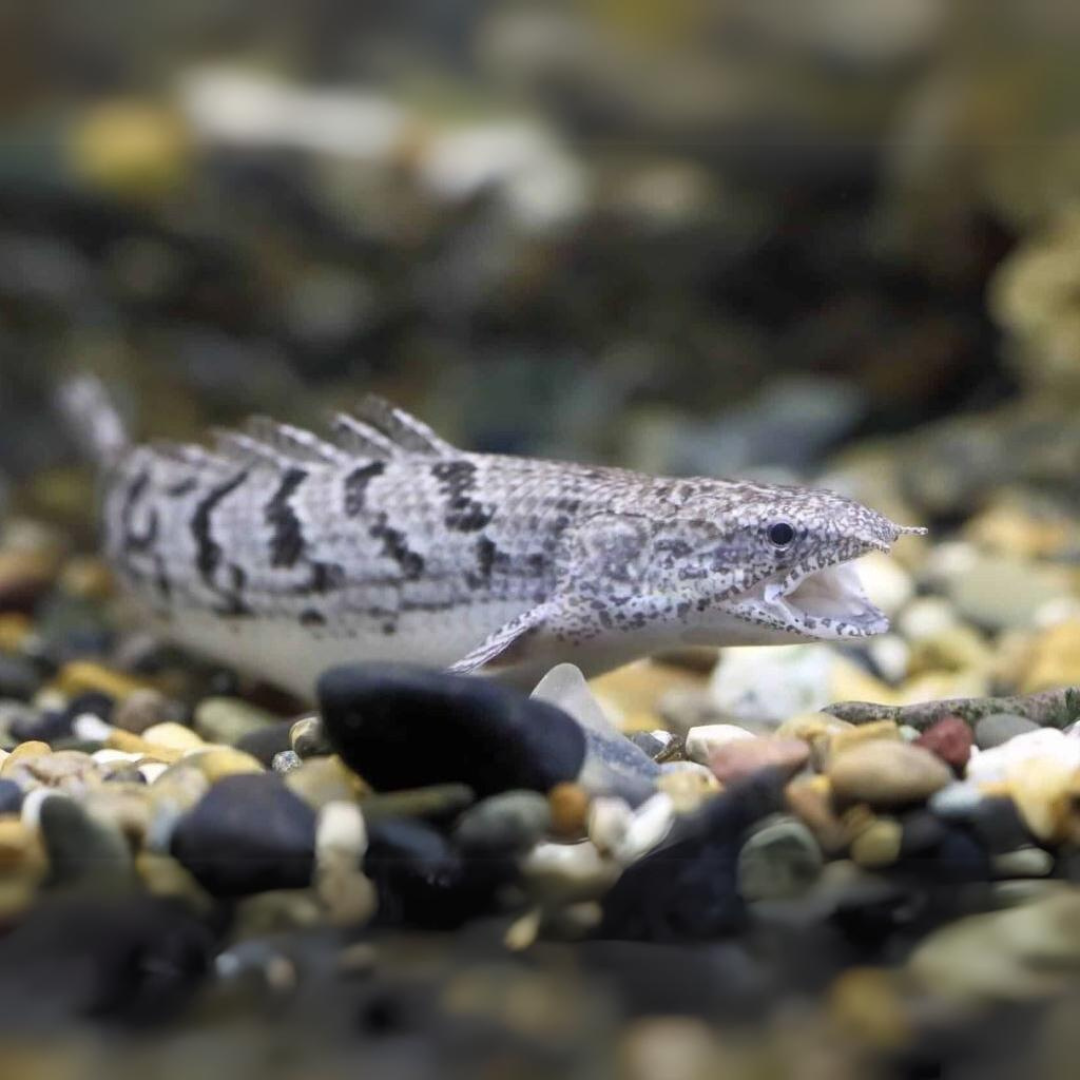Bichir Gray Senegal (2-3 Inches) | Single
Bichir Gray Senegal (2-3 Inches) | Single மீண்டும் ஆர்டர் செய்யப்பட்டுள்ளது, மீண்டும் கையிருப்பில் வந்தவுடன் அனுப்பப்படும்.
Couldn't load pickup availability
விளக்கம்
விளக்கம்
The Gray Senegal is a captivating enigma. At 5 to 6 inches, this juvenile is a burgeoning embodiment of prehistoric elegance. Its elongated body, cloaked in a subtle blend of grays and browns, allows it to seamlessly disappear into its surroundings. With its distinctive dorsal fin unfurling like a banner, this young lungfish commands attention even in its camouflage. A creature of twilight, the Gray Senegal Bichir is a master of stealth, a living relic that evokes a sense of wonder and mystery.
The Gray Senegal (5-6 Inches), also known as the Senegal Bichir (Polypterus senegalus), is a fascinating and distinctive freshwater fish renowned for its ancient lineage and unique appearance. Native to the slow-moving rivers and swamps of West Africa, the Gray Senegal Bichir is a popular choice for aquarium enthusiasts who appreciate its prehistoric charm and intriguing behavior.
Body Shape: The Gray Senegal Bichir has a long, cylindrical body with a segmented, armored appearance reminiscent of ancient fish species. Its body is covered in thick, bony plates that offer protection.
Coloration: As its name suggests, the coloration of the Gray Senegal is primarily a muted gray or olive-green. The coloration is often mottled with lighter and darker spots, giving it a camouflaged appearance in its natural habitat.
Fins: It features a series of dorsal finlets along its back, adding to its prehistoric look. The anal fin is long and extends along much of its body.
Size: At 5-6 inches, this Bichir is in its juvenile to early adult stage. Mature individuals can grow up to 12-16 inches, so the 5-6 inch size represents a younger, yet well-developed fish.
Activity Level: Gray Senegal Bichirs are generally slow-moving and somewhat reclusive. They are nocturnal and tend to be more active during the evening or night. During the day, they may rest or hide in caves and other shelters.
Feeding: They are carnivorous and primarily feed on live or frozen foods such as small fish, worms, and insects. They can also accept high-quality pellets designed for carnivorous fish.
Tank Size: A minimum tank size of 340 litres is recommended, as this fish requires ample space to accommodate its growth and swimming habits. Larger tanks are better suited for providing an appropriate environment.
Substrate and Decor: Provide a soft substrate like sand or fine gravel, as the Bichir may dig or forage along the bottom. Include hiding spots such as driftwood, rocks, and caves to mimic its natural habitat and offer security.
Water Conditions: Maintain slightly acidic to neutral water (pH 6.5-7.5) with a temperature range of 24-28°C (75-82°F). Good filtration is essential to keep the water clean and oxygenated.
Compatibility: The Gray Senegal Bichir is generally peaceful but may eat smaller fish or invertebrates. It is best kept with other medium to large fish that are not overly aggressive. Avoid housing it with very small tank mates that could be mistaken for prey.
Feeding: Offer a varied diet of live or frozen foods and high-quality pellets. Ensure that the diet is rich in protein to support its health and growth.



